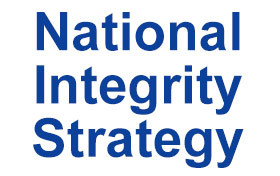Published: 29 May 2014
TIB urged the government to address the limitations of the National Integrity Strategy (NIS) to turn it into a fully implementable document. It also urged allocation of funds, provision of regular reporting and bringing ethics committee under the jurisdiction of the administrative mechanism. The call came during a press launch of a TIB study titled “National Integrity Strategy: Implementation and Progress” on 29th May at Hotel Abakash in Dhaka. Sadhon Kumar Das and Shammi Laila Islam, Programme Managers, Research and Policy, TIB presented the findings. Mr M Hafizuzddin Khan, Member, Board of Trustees; Dr Iftekharuzzaman, Executive Director and Dr Sumaiya Khair, Deputy Executive Director, TIB were also present.The study collected data from January – May 2014 and it revealed several significant steps by the government including formation of a National Integrity Advisory Committee under the stewardship of the hon’ble Prime Minister; an Executive Committee led the Finance Minister; NIS Implementation Unit led an Additional Secretary of the Administrative and Implementation Department of the Cabinet Division and appointment of focal person in all ministry, divisions and institutions under directives of the NIS unit to implement the NIS. In addition to these steps a number of consultation meetings were organised at national and district level and administrative initiatives were also in place to amend laws to this end.NIS includes 10 state and 6 non-state institutions. Government institutions made some short term progress such as: introduction of national web portal and e-service, formation of standing committees in the first session of the 10th parliament, installation of significant number of server stations by Election Commission, initiatives to introduce social performance audit, formation of monitoring cell to resist
|
corruption by Anti Corruption Commission (ACC) officials and initiatives to enact different laws.On the other hand the Supreme Judicial Council is yet to have any specific methodology, guideline or policy to run its business, Ombudsman is not yet appointed and Safe Food Act 2013 is yet to be implemented.6 non-state institutions namely political party, private industries and business entities, NGOs, family, educational institutions and media are yet to have any specific methodology and process to implement the NIS at their end. The Office of the Prime Minister and Bureau of NGO Affairs in collaboration with a few NGOs have drafted an action plan and it is now open for public opinion.Government, NGOs and stakeholders must proactively work together to make the NIS implementation platform effective- Iftekharuzzaman Many of these institutions lack from initiatives to implement the NIS action plan. For example political parties does not exercise democracy at expected level, no initiative has been taken so far to introduce code of conduct for political parties, nexus among government and business for unethical gain and influence fair competition and journalists are facing risks in carrying out professional duties.According to the report there were a number of challenges in effective implementation of the NIS which included among others inconsistency between NIS |
|








